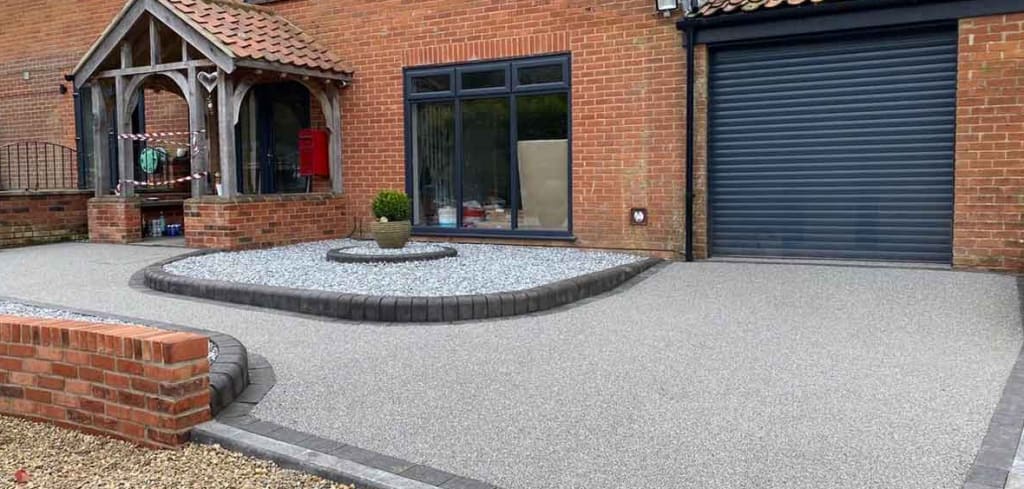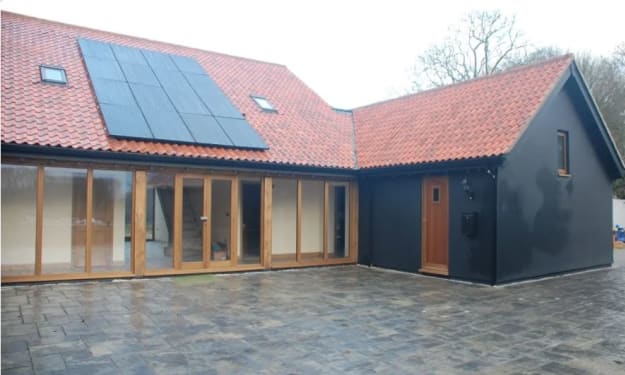What is a resin bound driveway and how does it differ from other types of driveway surfaces?
what is a resin bound driveway exactly

When it comes to driveway surfaces, there are a multitude of options available. From traditional concrete and asphalt to interlocking pavers and gravel, the choice can be overwhelming. But have you heard of resin bound driveways? This increasingly popular choice of driveway surface offers a unique look and a range of benefits over other materials.
So, what is a resin bound driveway exactly? Resin bound surfacing involves mixing aggregates with a clear resin binder which are then troweled down to create a smooth, even surface. The result is a stunning finish that is also durable, permeable, and low maintenance. Resin bound surfaces can be created using a wide range of aggregates, from natural stones like granite and marble, to recycled materials such as glass and rubber.
But how does a resin bound driveway differ from other types of driveway surfaces? Unlike traditional asphalt or concrete driveways, resin bound surfaces have a seamless finish with no cracks or loose stones. They are also highly resistant to UV rays, making
1. Definition of a Resin Bound Driveway
A resin bound driveway is a type of driveway surface that is made by mixing resin with aggregates such as gravel, stone, or other natural materials. The mixture is then applied over a prepared surface, creating a seamless, porous, and highly durable driveway. Unlike traditional driveways made of concrete or asphalt, a resin bound driveway has a permeable surface that allows water to drain through it, reducing the risk of flooding and water damage. Additionally, a resin bound driveway has a non-slip surface, making it safer to walk on during wet or icy conditions. Overall, a resin bound driveway provides a highly attractive and low-maintenance solution for homeowners looking to upgrade their driveway surface.
2. Advantages of a Resin Bound Driveway
A resin bound driveway is a type of surfacing that is made by mixing small stones with a resin, which is then applied to a surface. Unlike other types of driveway surfaces, a resin bound driveway has a number of advantages that can make it a popular choice for homeowners.
For one, it is extremely durable and can last for many years without needing to be replaced. In addition, a resin bound driveway is very low maintenance, requiring only occasional cleaning to keep it looking its best. Because the stones used in the mix come in a variety of colors and sizes, a resin bound driveway can also be customized to match the style of any home or landscape, making it a popular choice for those who want to add curb appeal to their property. Finally, because it is porous, a resin bound driveway can be an environmentally friendly choice, allowing rainwater to drain through the surface and into the ground, rather than contributing to runoff and erosion.
3. Installation Process
The installation process of a resin bound driveway requires a specific set of skills and knowledge to ensure a proper installation. First, the surface must be cleaned and prepped thoroughly, removing any debris, dirt, or oil to ensure a strong bond between the resin and the surface. Next, a base layer of crushed stone or concrete is laid, and leveled to the desired grade, providing a solid foundation. Then, the resin mixture is prepared, and a layer is evenly spread over the base layer, using trowels or screed bars.
Finally, the chosen decorative aggregate is scattered over the resin layer, evenly distributed, and then troweled down to ensure that they blend with the resin. The curing time for the resin is typically around 24 hours, after which the surface can be used normally. The installation process of a resin bound driveway differs from other types of driveway surfaces, as it provides a seamless, durable, and low maintenance surface, without the need for regular maintenance or sealing.
4. Cost of a Resin Bound Driveway
When considering a new driveway for your property, one option that has gained popularity in recent years is a resin bound driveway. This type of driveway surface is created by combining a mixture of natural gravel or crushed stone with a clear, UV-stable resin. The resulting mixture is laid on a prepared surface, creating a smooth, permeable finish that is both aesthetically pleasing and practical.
However, one of the key considerations for homeowners when selecting a new driveway is the cost of installation. The cost of a resin bound driveway can vary depending on a number of factors, such as the size of the area to be covered, the type of aggregate chosen, and the complexity of the installation. On average, the cost of a resin bound driveway ranges from £40-£80 per square meter, making it a more expensive option compared to other driveway surfaces such as concrete or asphalt. However, it is important to note that resin bound driveways offer a longer lifespan and require less maintenance, making it a cost-effective investment in the long run.
5. Maintenance Requirements for a Resin Bound Driveway
When it comes to maintenance requirements, resin bound driveways are considered to have a lower maintenance requirement than other types of driveway surfaces. However, it is important to note that some maintenance is still required to ensure the longevity and appearance of the driveway. The most important aspect of maintaining a resin bound driveway is proper cleaning and regular maintenance checks. This includes removing any debris, such as fallen leaves or dirt, with a stiff brush or power washer. In addition, any cracks or damage to the surface should be repaired as soon as possible to prevent further damage. It is also recommended to apply a top coat or sealant every few years as a protective measure against UV rays and general wear and tear. By following these maintenance requirements, a resin bound driveway can last for many years and continue to look beautiful.
In conclusion, a resin bound driveway can provide a durable, low-maintenance, and aesthetically pleasing solution for homeowners looking to enhance their curb appeal. Compared to other types of driveway surfaces, it offers advantages such as permeability, flexibility in design, and durability. While the initial cost of installation may be higher, the long-term benefits in terms of reduced maintenance and increased durability make it a worthwhile investment. Ultimately, when considering a new driveway surface, it’s important to weigh the pros and cons of different options and choose the one that best suits your needs and budget.
About the Creator
Neck Akila
My specialty is combining research-backed strategies to create marketing copy that resonates with readers and drives conversions





Comments
There are no comments for this story
Be the first to respond and start the conversation.